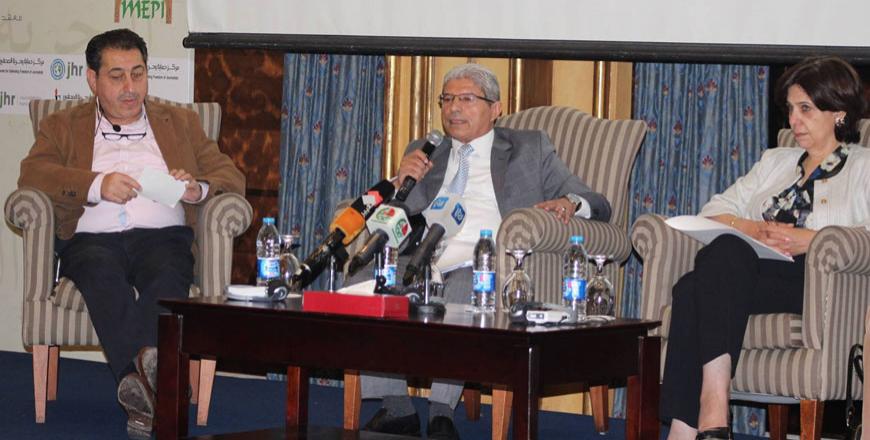You are here
Lower House reviews 2019 Access to Information Law amendments
By Bahaa Al Deen Al Nawas - Jan 20,2020 - Last updated at Jan 22,2020
AMMAN — The Lower House on Sunday began its review of the 2019 amendments to the Access to Information Law, which the Cabinet approved on December 30 last year and referred to the Lower House for endorsement.
According to the government, the amendments were made to align the Access to Information Law with international agreements and best practices, Jordan Press Association (JPA) member Khaled Qudah told The Jordan Times on Monday, noting that the amendments enhance transparency and integrity and combat corruption.
Among other things, the proposed amendments increase the number of entities committed to disclosing information voluntarily or through requests, Qudah said.
Entities required to adhere to the Access to Information Law now include associations, political parties and any institutions that receive partial or complete funding from the state budget or a foreign party, Qudah noted.
The amendments to Article 3 restructure the Information Council to include two representatives of civil society and the chairpersons of the JPA and the Jordan Bar Association, which Qudah said is designed to "strike a balance" among the council's government and non-government members.
Amendments to Article 4 also give the Information Council additional responsibilities. These responsibilities include ensuring that information is provided according to the law, referring an annual report to Parliament and the prime minister for publication and proposing draft laws and by-laws related to the access to and flow of information.
"Core amendments have been made to Article 7 of the law," Qudah also said, noting that the amended article separates this law from others by cancelling the phrase "subject to the provisions of the amendments in force".
The amendments also overturn the need for Jordanians requesting information to provide a legitimate reason. Non-Jordanian residents, however, are still required to provide reasons for requesting information, Qudah said, adding that their requests will be subject to the "principle of reciprocity".
According to the recent amendments, the period given to institutions for disclosing information after the request date has been reduced from 30 to 15 days.
The amendments also removed the word "oral" from Article 2 in the original 2007 law, excluding oral information from information that can be requested under the Access to Information Law, according to the draft law shared by Qudah with The Jordan Times.
While the Access to Information Law clearly requires most entities and institutions under Jordanian law to regularly divulge information related to their structure, budget, programmes and projects, among others, even when it is not requested, the amendments exempt the Jordan Armed Forces-Arab Army, the General Intelligence Department and the Public Security Department from this requirement, according to Qudah.
However, Qudah noted, the amendments do not specify penalties to be given in the case that an institution does not divulge all or part of this information as per the law.
The amendments also stipulate that if information is not released subject 15 days, it is considered a denial of the request, Qudah said, adding that the amendments do not give privileges to journalists.
Article 10, which stipulates that requests for information connoting religious, racial or gender bias may not be made, remains unchanged.
For his part, President of the Centre for Defending the Freedom of Journalists (CDFJ) Nidal Mansour said that the current Access to Information Law has been enforced since 2007.
"The law in 2007 was the first Arab law of the sort, but it was not as effective as intended because of the limitations imposed in it," Mansour said.
The 2007 law, he said, should have been separate from other laws and implemented on its own, but the article at the end of the law imposed respecting “in force legislations”, which “rendered the whole law ineffective”.
"In 2012, the Cabinet proposed five amendments to the Lower House, and the CDFJ at the time sent a memo to the Lower House speaker, stating that while these amendments were positive, they were not the core problem of the law," Mansour said.
When Prime Minister Omar Razzaz formed his government, Mansour said, a proposal to amend the law was made again, and the Cabinet responded by having former culture minister Mohammad Abu Rumman form a higher committee to prepare an integrated draft law.
"As an executive director of the CDFJ, I was a representative in that committee, and we worked for months to draft the amendments, and then the centre proposed a complete draft law, fully integrated, most parts of which have been approved, and it was sent to the Cabinet," he said.
The CDFJ president noted that the most important part of the draft was separating the Access to Information Law from other laws, in addition to restricting limitations and exceptions in alignment with international standards.
Although Mansour believes that the recent amendments from the Cabinet are “an improvement on the original 2007 law”, he noted that some of the amendments made by the higher committee have been omitted.
The new law waiting for endorsement from the Lower House, together with the latest amendments, is still subject to other laws, and the limitations are still many, Mansour said, arguing that this "weakens the law".
Related Articles
AMMAN — With the government stressing that it is working to ease access to information, a watchdog said current efforts are insufficient, ca
AMMAN – Access to information is a right, not a luxury, which improves transparency, supports efficient public administration and helps comb
AMMAN — The government on Sunday said it will withdraw the cybercrime draft law, which was referred to the Lower House by the previous gover














